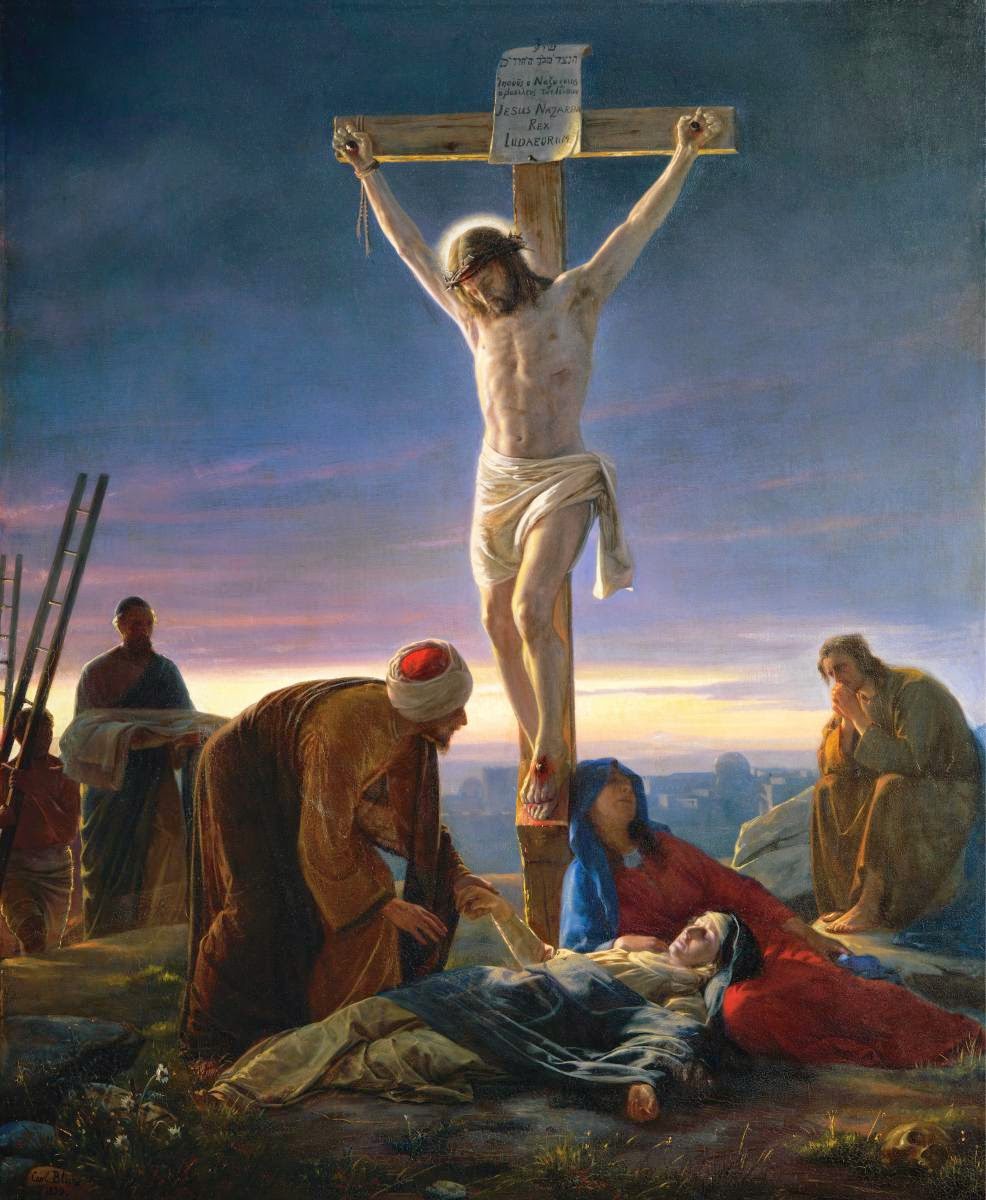The following is an essay I penned for my Religions of the Western World class taken under Rutgers University conducted by Professor James Pavlin. I'd like to present this forth as my Easter present to the world. Peace!
The Christian view of Atonement and Salvation is strongly linked to the concept of Original Sin and Sacrifice. Christians believe every sin is equal in the eyes of God. And God is Pure and Divine. So in order to reconcile oneself with God, he or she must cleanse himself or herself of all sins for any sin, even something as minute as a lie taints the soul and the soul then becomes turned away from God and His Grace.
This is where the earlier Jewish view of repentance through sacrifice comes in. The early Jews used to sacrifice cattle at the Temple of God in order to be forgiven by God and saved. But Christians believe that human beings are inherently tainted by sin from birth due to the actions of Adam and Eve. The act of disobedience performed by them in the Garden of Eden was so profound and deep that it cut into the souls of all their children. We are all tainted, as the Book of Romans, Chapter 3, Verse 10 tells us:
"As it is written, there is none righteous, no, not one."
And the Stature of God is indeed much too great to tolerate this, as the Book of Romans also tells us, this time in Chapter 3, Verse 23:
"For all have sinned, and come short of the Glory of God.
Due to the stain of the Original Sin imprinted upon the souls of all mankind as per the consequences of the action of Adam and Eve, no amount of good deeds such as prayer, fasting or charity can save mankind nor will the meticulous following of the Law because Christians believe that the Law is beyond human limitations to fulfill, for the Law demands that which we as humans cannot do.
"You shall be holy, as I the Lord your God am holy" is the impossible demand of the Law. In other words, humans cannot attain salvation by themselves. Verse 6 from Chapter 64 of the Book of Isaiah is used to explain this:
"But we are all as an unclean thing, and all our righteousness are as filthy rags."
Therefore, in order to pay the wager for the Original Sin, a perfect sacrifice was required to attain God's Grace for us. The idea of the sacrifice to be forgiven of sin comes from the Jewish tradition of sacrificing cattle, in most cases, a lamb, for repentance. So God, in His Infinite Mercy and Love, chose to become the sacrifice in flesh descending in the form of the Holy Son to die on the cross and atone for us all. This is why, Jesus, believed to be the Holy Son, is entitled the Lamb of God.
The Sacrifice of Jesus was required to cleanse humanity of the sin of Adam so that mankind may be saved and become pure again so their good deeds can be accepted by God as way to earn His Blessings. No excerpt of the Bible propounds this clearer than Romans, Chapter 5, Verses 12 through 21:
"Therefore, just as sin came into the world through one man, and death through sin, and so death spread to all men because all sinned — for sin indeed was in the world before the law was given, but sin is not counted where there is no law. Yet death reigned from Adam to Moses, even over those whose sinning was not like the transgression of Adam, who was a type of the one who was to come.
But the free gift is not like the trespass. For if many died through one man’s trespass, much more have the Grace of God and the free gift by the Grace of that one man Jesus Christ abounded for many. And the free gift is not like the result of that one man’s sin. For the judgment following one trespass brought condemnation, but the free gift following many trespasses brought justification. For if, because of one man’s trespass, death reigned through that one man, much more will those who receive the Abundance of Grace and the free gift of righteousness reign in life through the one man Jesus Christ.
Therefore, as one trespass led to condemnation for all men, so one act of righteousness leads to justification and life for all men. For as by the one man’s disobedience the many were made sinners, so by the one man’s obedience the many will be made righteous. Now the law came in to increase the trespass, but where sin increased, grace abounded all the more, so that, as sin reigned in death, grace also might reign through righteousness leading to eternal life through Jesus Christ our Lord."
But unless one accepts this sacrifice of God the Son to God the Father after he knows of it, he is not presented with God's Grace and he is denied the gift of eternal life because, as the Book of Romans, Chapter 6, Verse 23 tells us, Jesus Christ is the only way to Salvation and eternal life:
"...but the gift of God is eternal through Jesus Christ our Lord."
This, Christians justify, through the own words of Jesus as narrated in the Book of John, Chapter 14, Verse 6:
"I am the way, the truth, and the life: no man come unto the Father, but by me."
— Fahim Ferdous Kibria

.jpg)